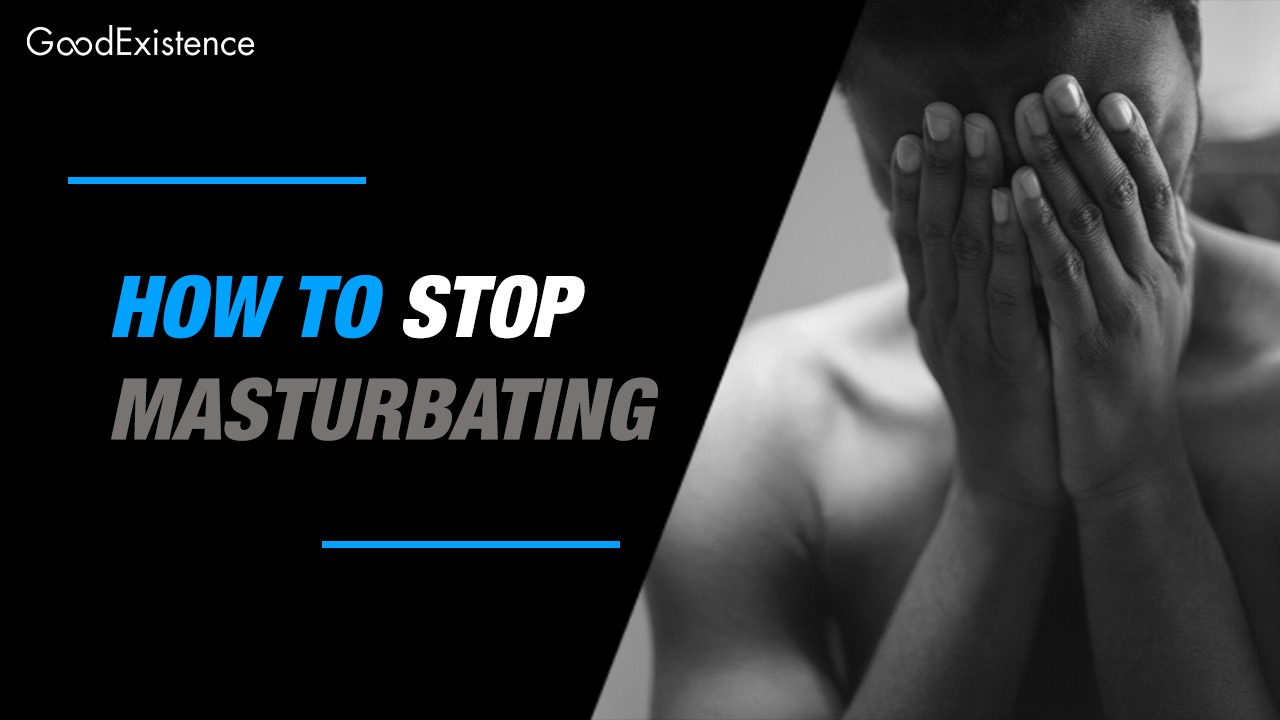Are you looking for ways to overcome compulsive masturbation? You’re not alone. Many people face difficulties when trying to quit this habit. However, by adopting the right strategies and mindset, you can learn how to stop masturbating and enhance your life.

If you’re looking for ways to stop masturbating, you’ve come to the right place.
Masturbation is a common behavior, but it can become compulsive and interfere with daily life. It can also lead to feelings of guilt, shame, and anxiety.
However, by taking proactive steps to stop this habit, you can regain control of your thoughts and actions.
In this article, we will discuss seven effective ways to quit masturbating for good. From understanding the reasons why you want to stop to incorporating healthy habits into your routine, these strategies can help you break the cycle of compulsive behavior.
Whether you’re looking to improve your mental health, relationships, or overall well-being, learning how to stop masturbating can be a valuable step in your journey toward personal growth and self-improvement.
Let’s dive into how to stop masturbating and take control of your life.
What is masturbation?

Masturbation is the act of self-stimulating one’s genitals for sexual pleasure, typically until orgasm.
However, even though it might be considered common and natural behavior by some, it can become a compulsive behavior that interferes with daily life and relationships.
Understanding the definition and implications of masturbation can be a helpful first step in addressing any concerns or issues related to this behavior.
Masturbation has been practiced for centuries and is found in cultures all around the world.
It is often considered a taboo topic, which can lead to misinformation and shame surrounding the practice.
According to the National Survey of Sexual Health and Behavior, conducted in the United States, 74% of men and 48% of women have masturbated at some point in their lives.
Masturbation is most common among younger age groups, with the highest rates reported among those aged 20 to 24.
It is important to recognize when masturbation becomes compulsive or interferes with daily life and to seek help if necessary.
Why do people masturbate?

The reasons why people masturbate can vary from person to person and can include both physical and emotional factors.
For many individuals, masturbation is a way to explore their own body, learn about their sexual desires, and experience pleasure on their own terms.
Another reason why people masturbate is to relieve sexual tension or reduce stress.
Masturbation can provide a quick and easy release of sexual energy, which can be particularly helpful for those who are experiencing sexual frustration or have a high sex drive.
Some individuals also use masturbation as a way to fall asleep or relax before bedtime.
Additionally, some people masturbate as a way to cope with negative emotions such as anxiety, depression, or loneliness.
Masturbation can produce endorphins, which are natural chemicals that promote feelings of happiness and well-being.
This can make masturbation an appealing activity for those who are struggling with negative feelings or difficult life situations.
Overall, there are a variety of reasons why people may choose to masturbate, and these reasons can be different for each individual.
However, there are a lot of negative effects of masturbation, some that can even include health issues, which in comparison to the reasons above, it’s totally not worth it.
What are the negative effects of excessive masturbation?

Excessive masturbation can have negative effects on one’s physical, psychological, and social well-being.
Physically, over-masturbation can cause fatigue, weak erections, premature ejaculation, and even genital injuries.
Some studies have shown that excessive masturbation can also lead to hormonal imbalances, which can cause hair loss, acne, and decreased sex drive.
Psychologically, excessive masturbation can lead to anxiety, depression, and other mental health issues. Individuals who are addicted to masturbation may also experience shame, guilt, and a decrease in self-esteem.
Additionally, excessive masturbation can lead to the development of sexual dysfunctions, such as delayed ejaculation or erectile dysfunction.
Socially, excessive masturbation can lead to a decrease in social interaction and even lead to isolation.
Individuals may also become preoccupied with their own sexual desires, leading to a decrease in productivity and motivation.
Moreover, excessive masturbation may interfere with normal sexual relationships and intimacy with partners.
Some studies have also suggested a correlation between excessive masturbation and various health issues.
Also, most men who masturbated excessively reported a decreased sex drive and suffered from fatigue.
Another study conducted found that men who masturbated excessively were more likely to develop sexual dysfunctions, such as premature ejaculation.
In conclusion, while masturbation can be a healthy and normal part of one’s sexual life, excessive masturbation can have negative effects on one’s physical, psychological, and social well-being.
It is important to maintain a balance and seek help if addiction or negative effects are experienced.
But it’s way better if you just try and stop masturbating for good, and here’s how you can do that:
How To Stop Masturbating – 7 Tips
1. Identify triggers and avoid them

The first step in quitting masturbation is to recognize what triggers the behavior. These triggers could be emotional or situational, such as stress or boredom.
Once you have identified the triggers, you can develop a plan to avoid or manage them.
For example, if stress is a trigger, try stress-reduction techniques like deep breathing or meditation. If boredom is a trigger, find ways to keep yourself busy like going for a walk or doing some household chores.
2. Create a new routine
Replace the habit of masturbation with a new routine. For example, you could start a workout routine, read a book, or learn a new hobby.
This will keep your mind and body occupied, making it easier to break the habit.
You could also try incorporating exercise into your routine as it can help reduce stress and release endorphins, which can improve your mood.
3. Find a support system

Surround yourself with people who support your decision to quit masturbating. This could include friends, family, or a support group.
Having someone to talk to can make a big difference in your journey to recovery.
Consider joining an online support group or seeking help from a therapist who specializes in addiction.
4. Practice self-discipline
Breaking a habit requires self-discipline. You may need to set boundaries for yourself and establish rules to follow.
For example, you could make a rule to avoid being alone in a room with a computer or smartphone, especially since you can easily stray away to dark corners of the web filled with dirty images and videos.
You could also try using a calendar to track your progress or reward yourself for reaching certain milestones.
Related Read: Motivation vs Discipline
5. Stay busy and stop masturbating

Idle time can lead to temptation. Keep yourself busy with work, hobbies, or social activities.
Find ways to fill your time so that you’re not tempted to masturbate.
Consider volunteering, taking up a new sport or activity, or spending more time with friends and family.
6. Use visualization techniques
Visualize yourself overcoming the addiction and achieving your goals. This will help you stay motivated and focused on your recovery.
Try imagining yourself in situations where you are faced with the temptation to masturbate and visualize yourself making the right decision to resist.
7. Seek professional help to quit masturbation
If you find it difficult to quit masturbating on your own, consider seeking professional help. This could include therapy, counseling, or support groups.
A trained professional can help you develop coping strategies and provide emotional support throughout the recovery process. Remember, it’s never too late to seek help and take control of your life.
Is Masturbation a sin?

From a Christian point of view, masturbation is considered a sin because it involves sexual arousal and gratification outside of the context of marriage.
The Bible teaches that sex is a sacred act reserved for a husband and wife in marriage, and any sexual activity outside of marriage is considered a sin.
The Bible doesn’t specifically mention masturbation, but it does condemn sexual immorality and impurity, which includes any sexual activity outside of marriage.
Additionally, Jesus taught that even thinking about sexual activity with someone who is not your spouse is sinful (Matthew 5:28).
Some argue that since masturbation is a private act and doesn’t involve another person, it’s not harmful or sinful.
However, the Bible teaches that our bodies are temples of the Holy Spirit, and we are called to honor God with our bodies (1 Corinthians 6:19-20).
Masturbation can be a selfish act that dishonors God and doesn’t align with His plan for sexuality.
It’s important to note that sin isn’t about shaming or condemning individuals, but rather about acknowledging and turning away from actions that go against God’s will.
If you struggle with masturbation, it’s important to seek guidance and support from a trusted Christian counselor or pastor who can help you overcome this behavior and find healing in Christ.
Interesting facts about masturbation
- Masturbation has been practiced throughout history, with references to it dating back to ancient civilizations such as Egypt, Greece, and Rome.
- Despite common myths, masturbation does not cause blindness, hairy palms, or infertility.
- It is estimated that 80% of men and 65% of women have masturbated at some point in their lives.
- Masturbation is often a taboo topic, and many people feel ashamed or embarrassed to discuss it openly.
- Some studies suggest that frequent masturbation can lead to a decrease in sexual desire, while others suggest it can actually increase sexual desire.
Why is it good to stop masturbating?
Quitting masturbation can bring about several benefits for individuals, ranging from improved physical health to better mental health and relationships.
Firstly, excessive masturbation can lead to physical problems such as fatigue, weakness, and even erectile dysfunction. By abstaining from masturbation, individuals can improve their physical health and energy levels.
Moreover, masturbation addiction can lead to psychological problems such as anxiety, depression, and low self-esteem.
Quitting masturbation can help individuals gain more control over their thoughts and emotions, resulting in a better mental state.
Additionally, excessive masturbation can lead to a decrease in social interaction and relationship problems, such as decreased intimacy and even infidelity. By quitting masturbation, individuals can improve their relationships and social life.
Overall, quitting masturbation can bring about a range of physical, mental, and social benefits, making it a worthwhile goal for those looking to improve their overall well-being.
How to Stop Masturbating: Conclusion
In conclusion, excessive masturbation can have negative effects on physical, psychological, and social aspects of life. It can also be considered a sin in some religious beliefs.
However, there are various ways to overcome this addiction and improve one’s overall health and relationships.
To recap, the negative effects of excessive masturbation include physical issues such as erectile dysfunction and fatigue, psychological issues such as depression and anxiety, and social issues such as decreased social interaction and productivity.
On the other hand, quitting masturbation can lead to improved physical health, mental health, and relationships.
In summary, if you’re struggling with compulsive masturbation, know that you’re not alone and there is hope for recovery.
It may be challenging to quit, but with the right strategies and mindset, you can learn how to stop masturbating and improve your life.
In conclusion, we encourage you to seek support from loved ones or professionals, practice self-compassion and remind yourself of the benefits of quitting.
Remember, it’s never too late to make a positive change in your life. I was able to quit masturbation and pornography cold turkey about 3 years ago and since then my life has drastically improved for the better.
I have written another blog post about Why Porn is Unhealthy, and I won’t go into too much detail here because I’m going to make this too long, so if you want you can click on that link and check that article as well.
How To Quit Masturbation – FAQ
Is masturbation addiction a real thing?
Yes, compulsive masturbation is a recognized behavioral addiction that can have negative impacts on physical, mental, and social health.
How do I know if I have a problem with masturbation?
If you find that you are masturbating compulsively and it is interfering with your daily life, relationships, or work, you may have a problem with masturbation addiction.
Can I quit masturbation on my own, or do I need professional help?
It is possible to quit masturbation on your own, but professional help may be beneficial for some individuals, especially if the addiction is severe or if there are underlying mental health issues.
How long does it take to quit masturbating?
The length of time it takes to quit masturbating can vary for each person. It may take several weeks or months to break the habit and overcome the addiction.
See also in Addictions
Why Social Media is Destroying Your Focus
12 Tips for Overcoming Shopping Addiction
12 Strategies to Overcome Sugar Addiction
10 Tips for Breaking Free from Video Game Addiction
30 Breaking the Busy Addiction
12 Tips for Breaking the Netflix Binge Habit